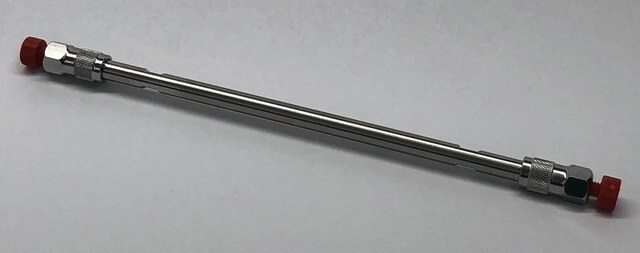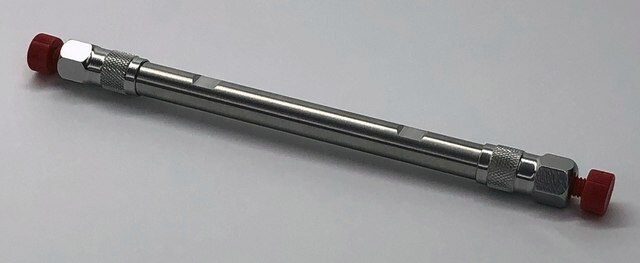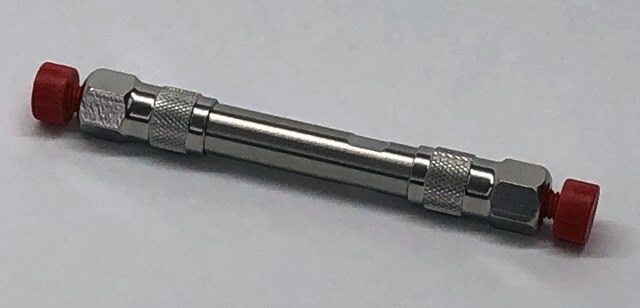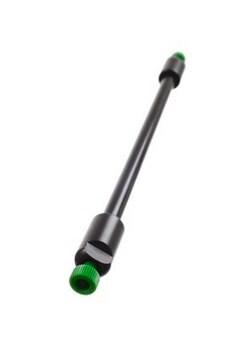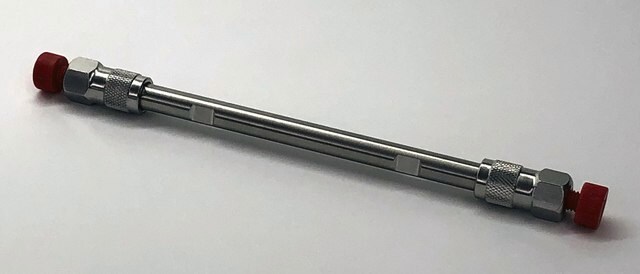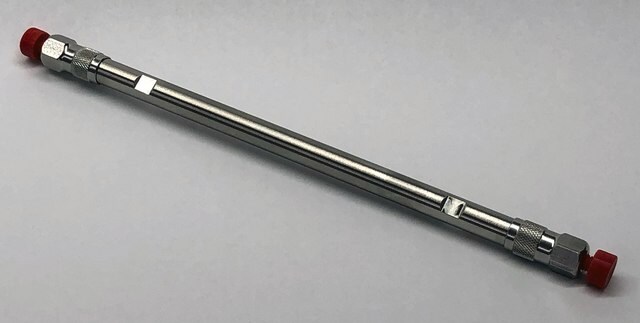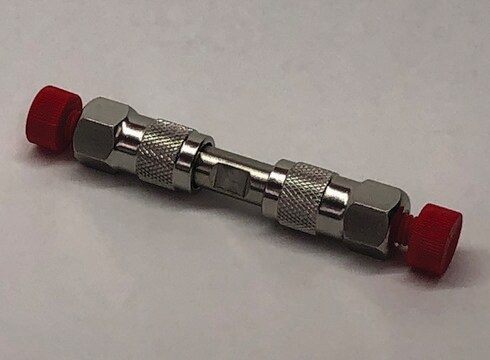Key Documents
51418-U
Ascentis® Express 90 Å HILIC (2 μm) HPLC Columns
L × I.D. 15 cm × 2.1 mm UHPLC Column
About This Item
Polecane produkty
product name
Ascentis® Express HILIC, 2 μm UHPLC Column, 2 μm particle size, L × I.D. 15 cm × 2.1 mm
Materiały
stainless steel column
Poziom jakości
agency
suitable for USP L3
linia produktu
Ascentis®
Właściwości
endcapped: no
producent / nazwa handlowa
Ascentis®
opakowanie
1 ea of
Parametry
≤60 °C temp. limit
1000 bar max. pressure (14500 psi)
metody
LC/MS: suitable
UHPLC-MS: suitable
UHPLC: suitable
dł. × śr. wewn.
15 cm × 2.1 mm
powierzchnia
120 m2/g
zanieczyszczenia
<5 ppm metals
macierz
particle platform (Fused-Core)
superficially porous particle
grupa aktywna macierzy
silica phase
wielkość cząstki
2 μm
wielkość porów
90 Å pore size
zakres pH
1-8
Zastosowanie
food and beverages
metoda separacji
hydrophilic interaction (HILIC)
normal phase
Szukasz podobnych produktów? Odwiedź Przewodnik dotyczący porównywania produktów
Opis ogólny
Informacje prawne
Wybierz jedną z najnowszych wersji:
Certyfikaty analizy (CoA)
Nie widzisz odpowiedniej wersji?
Jeśli potrzebujesz konkretnej wersji, możesz wyszukać konkretny certyfikat według numeru partii lub serii.
Masz już ten produkt?
Dokumenty związane z niedawno zakupionymi produktami zostały zamieszczone w Bibliotece dokumentów.
Nasz zespół naukowców ma doświadczenie we wszystkich obszarach badań, w tym w naukach przyrodniczych, materiałoznawstwie, syntezie chemicznej, chromatografii, analityce i wielu innych dziedzinach.
Skontaktuj się z zespołem ds. pomocy technicznej
